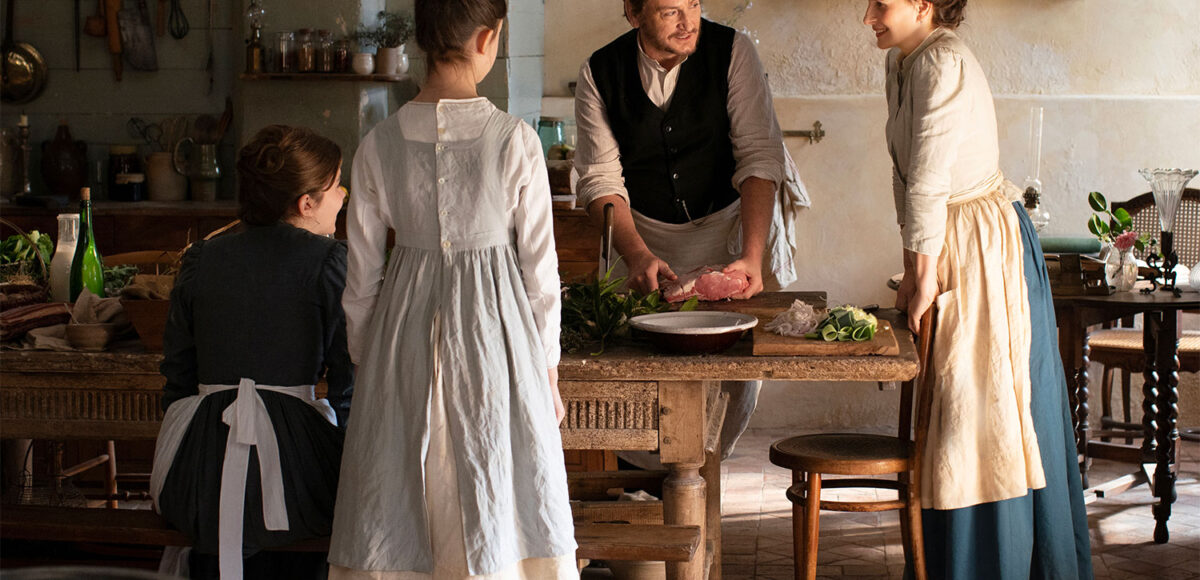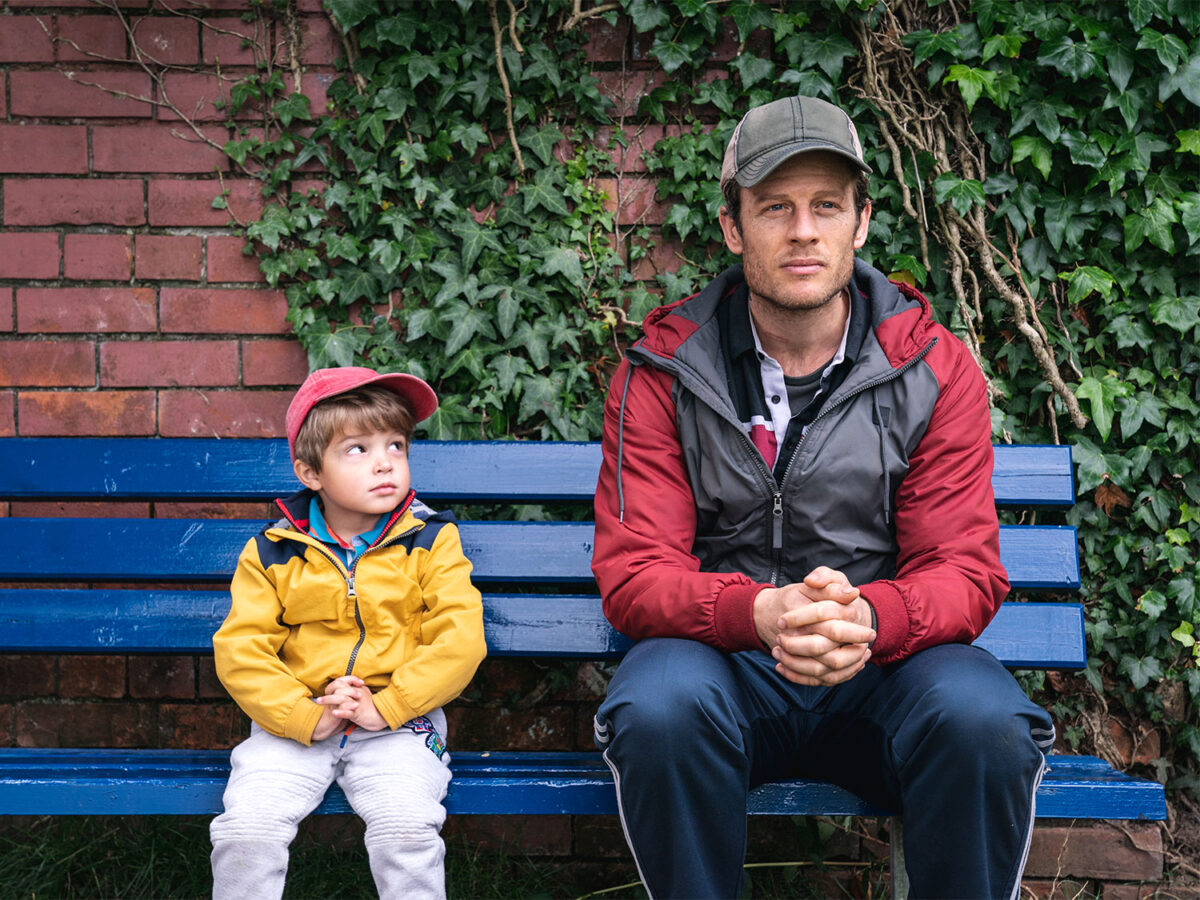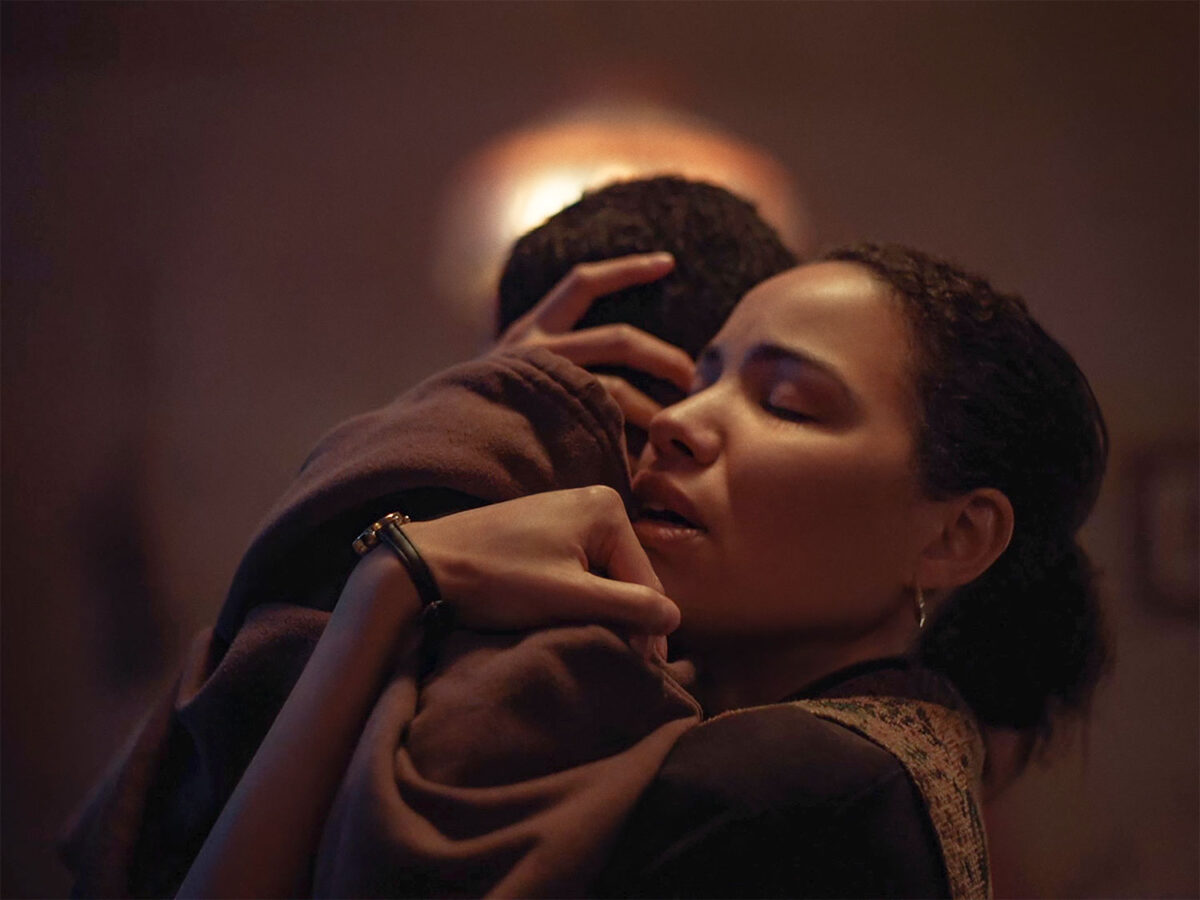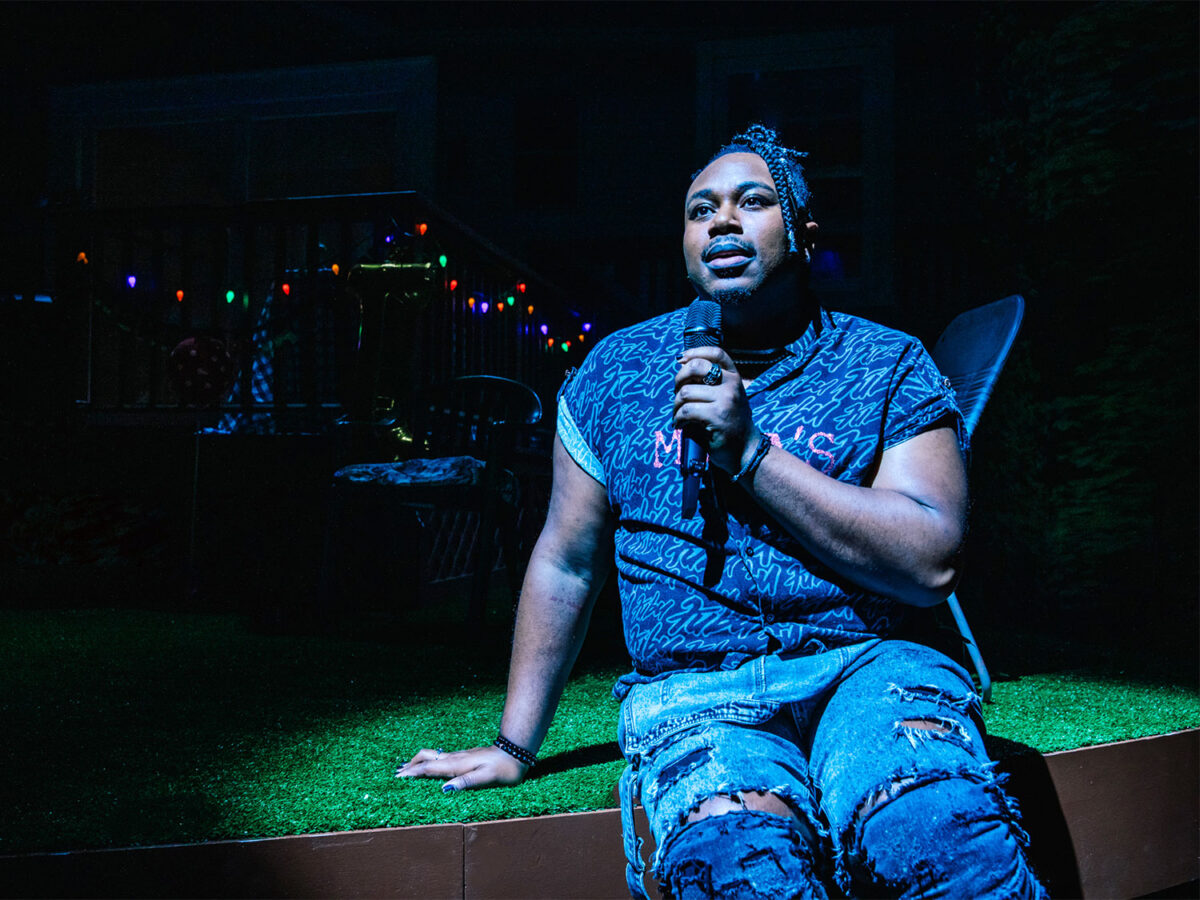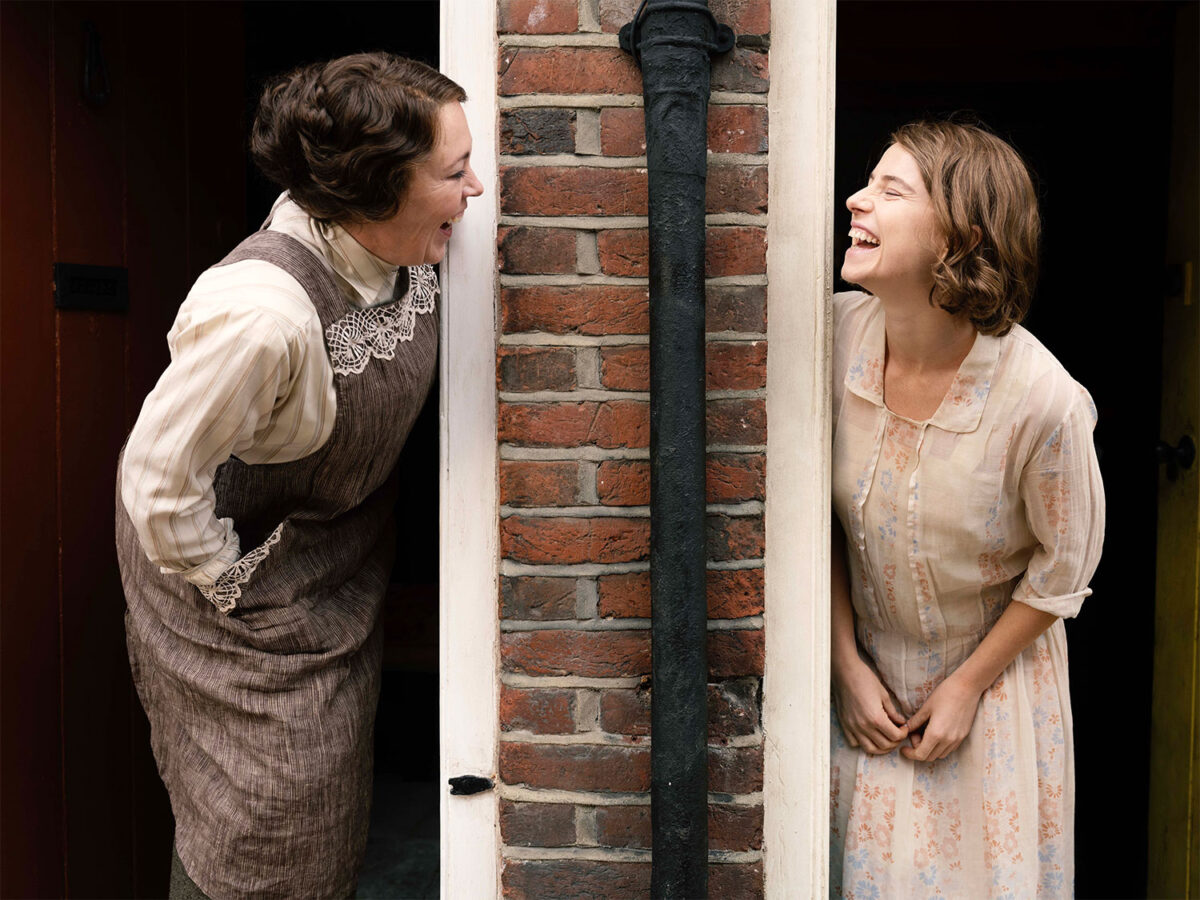My mouth is still watering from this sumptuous film, directed and written lovingly by Tran Anh Hung, based on the novel “The Life and Passion of Dodin Bouffant, Gourmet” by Marcel Rouff.
Vibrant colors, verdant leaves, bees swarming, “The Taste of Things” opens on Eugénie digging in a garden for vegetables soon to grace the table of gourmands. Holding up carrots and celery root that she has just pulled from the earth, Eugénie scrapes away the soil, wraps them in her apron and walks back to the estate where she presides over the kitchen with Violette as her helper.
It is 1889 and after a short conference with Dodin Bouffant, the renowned chef, a rival to Escoffier and heir to Brillat-Savarin, author of “The Physiology of Taste,” and Marie-Antoine Carême who elevated French cuisine to new heights in the early 19th century, Eugénie lovingly begins the prep for that day’s meal to be served to Dodin’s entourage. She and Dodin work together, whisking, sautéing, searing, assembling the many courses that will be served. He carefully chooses the wines that will accompany the meal, wines specifically chosen for their harmony with the various tastes and textures of his meal. Although working side by side, the relationship is unclear. With Violette hovering in the background, washing utensils, fetching water from the well, cutting and chopping, it is Eugénie who is in charge; more than just the cook to Dodin’s chef who applies the finishing touches. It’s his estate; it’s his kitchen; he is the king of his realm but she is the consort without whom he cannot maintain his reputation. Subordinate to no one, she dresses like those she supervises. Looks can be deceiving. He invites her to participate in the luncheon; she declines graciously. His friends, all leaders of the village, are curious why she won’t join in the meal.
Who is she and what is her relationship to Dodin? She has been there for many years and understands things about the food they make that sometimes even surpass him. His eyes never leave her. When he asks if he might join her in her room that night, she flashes her Mona Lisa smile, asking him if she has ever denied him. But he asks. He always asks.
Dodin is mad about her and that relationship colors all activities. It is doubtful you will have ever seen food like this, even at the best three-star restaurant in Paris. This is French food at its zenith prepared by a master of the age. But it’s more than the food, its textures and the beautiful presentation that matches the taste. It’s a metaphor for love, attainable and unreachable; ethereal and yet grounded. Dodin and Eugénie have been dancing both together and around each other in the kitchen for years. She is his equal; she knows it and so does he. He craves everything about her and has the eyes of a starving man when she refuses to marry him. But Eugénie understands something that he doesn’t. He may be the master of all around him but he will never be the master of her. She guards her independence fiercely and he will have to come to her, not she to him.
Yes, the presentation of the food, its preparation, its service is enough to make a Vegan repent, but the undercurrent of artistry is all important. In a rather hilarious scene, Dodin’s reputation has attracted the attention of an Eastern Potentate who wants to show off his knowledge of gastronomy and the chefs he employs. A menu has been prepared for Dodin and his entourage that he thinks is fit for a king with course after course of food, exotic and otherwise, the opulence of each dish exceeding the preceding in grandeur and ingredients, a dinner that took 8 hours to serve. What the potentate and his chefs neglected to consider was how each course should follow a logical path that compliments the one before it; that texture and taste must meld together to create something delicious and previously unknown; that the most audacious meals are sometimes the simplest. To that end, Dodin has already decided what he will make for the potentate—Pot au Feu, boiled beef and vegetables. More treacherous than it sounds but exquisite in the right hands, like those of Dodin and Eugénie. This too is a metaphor for their love in all its complexity and deceptive simplicity.
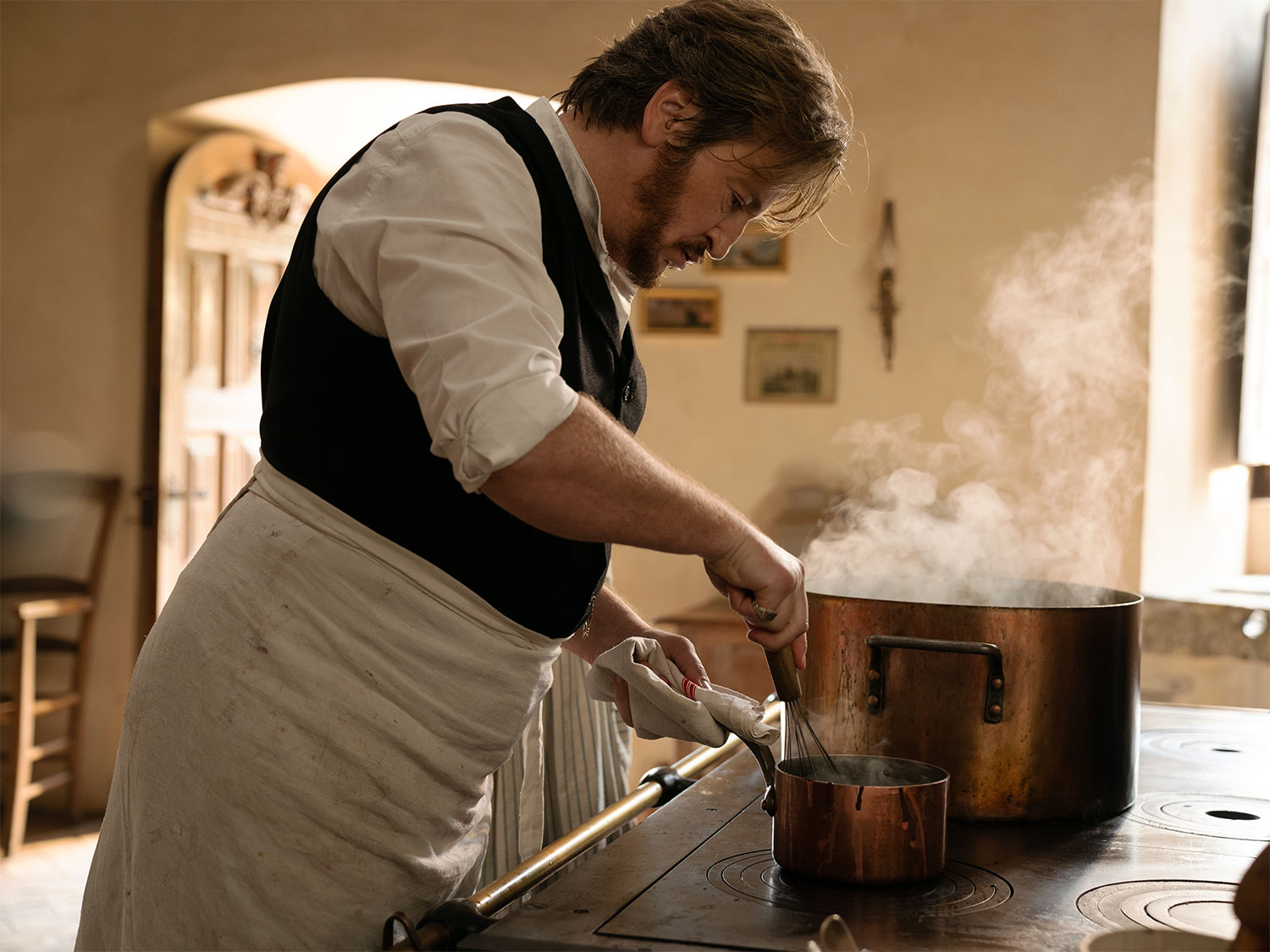
Photos courtesy of IFC/Sapan Studio
And all the while, Dodin continues to court Eugénie, begging, cajoling, strategizing. Finally realizing that he must show fealty to the love of his life, he sets out to win her over with the commodity they both understand—food. He prepares a meal for her, laying the table with his best china and silverware, opening rare wines, and preparing dishes she’ll be unable to resist and serving it himself. Love for food and food for love. The seeming calm of this older couple belies the shared passion that is hidden beneath the surface. The comfort they find in their relationship is accentuated by what has grown over the years, unspoken but known. Dodin exclaims that he has finally won the love of his life when they are in the autumn of their years. Eugénie, eyes twinkling, proclaims that she lives eternally in summer for its heat, the colors, the bursts of sun on her face and the constant renewal.
The food always underscores life at the villa with the quiet, studied supportive relationships it nurtures. When Violette introduces her niece Pauline to Dodin and Eugénie, life in the kitchen bursts forth anew like the first sprouts of spring. Pauline has the rare gift of taste much like perfect pitch in a musician. She is someone that they can help blossom; perhaps someday in the distant future she might inherit Eugénie’s rare gift. Her wide-eyed appreciation for the simplest broths foretells a happy future.
Surprisingly, there is no musical soundtrack, with the exception of an excerpt of “Thaïs” by Jules Massenet at the end. What you hear and see is a cast whose movements are organically choreographed as they glide from one prep station to the next. They move to the melodic sounds of butter sizzling, meat being basted, the whisking of eggs, the grinding of salt, the scraping of chairs, the whoosh of fires being lit, the wind in the trees…this is all the music necessary to make this deceptively quiet film become operatic.
Starting slowly, the first 20 minutes or so are entirely devoted to the preparation of a meal in the classical French tradition. This beginning may draw you in if you love food or it might not if you don’t. Stay with it because there’s so much more than meets the eye, and believe me there’s already a lot for the eye to meet.
Tran Anh Hung’s cast is exceptional. Galatéa Bellugi, Violette, glides in the background effortlessly adding a dimension to the kitchen orchestration as an overlooked backbone to the smooth running of the operation. Her cinematic gift is to be invisible and fully present at the same time. Newcomer Bonnie Chagneau-Ravoire played Pauline as both naïf and otherworldly in her approach to food, allowing us to understand that taste is an art form unto itself. Always wide-eyed and attentive, Hung was especially entranced with how nicely she chewed; he positively salivated watching her chew. Pierre Gagnaire, the three-star chef of his eponymously named restaurant in Paris, plays a cameo as the potentate’s head chef. Behind the scenes, it was Gagnaire who prepared and tested all the dishes in pre-production that would be presented in the movie, making sure that they would film beautifully and be interesting. His former colleague of 40 years and recently retired, Michel Nave, took over on location.
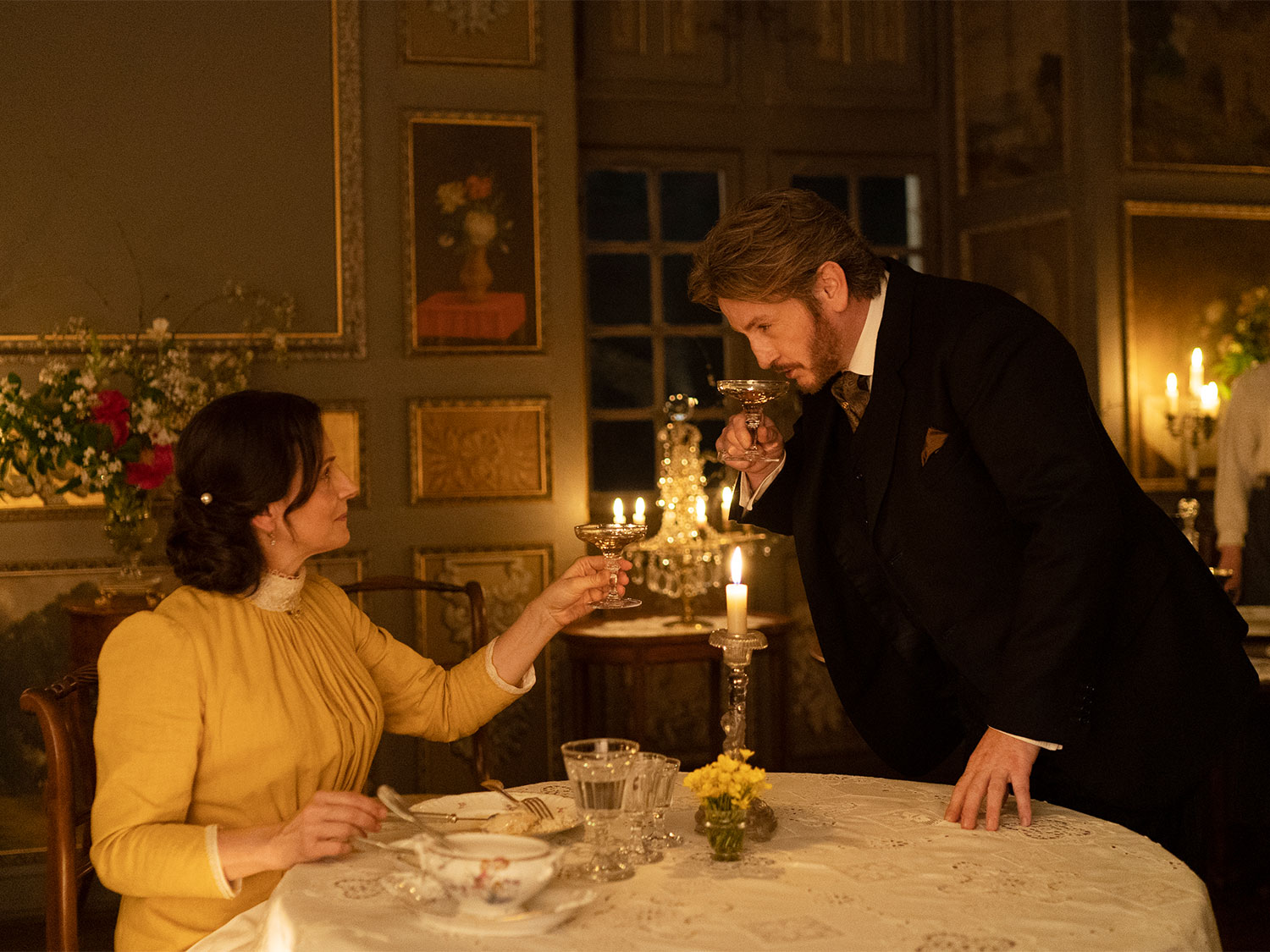
Juliette Binoche, Eugénie, has that uncanny chameleon ability to melt into a role. It is her eyes, her fluid movement across the kitchen, the slightly upturned lips yielding a classic Mona Lisa smile. She is mysterious and yet almost an open book. In describing her, Hung said, “Juliette has unbelievable presence. Once she appears, everything becomes real, interesting, moving…she brings to the character an interior strength that makes her resistance to Dodin’s desires all the more palpable.”
Benoit Magimel as Dodin is very serious, serious about his cooking, serious about his reputation, serious about Eugénie. Seemingly without humor, it is in his personal relationship with Eugénie that we see him blossom. Giving in to her needs and desires opens him up to grander possibilities than the food he presents to the world. The passion of the title is implied to be his love for food but, in the end, it is a passion for life itself, especially a life with Eugénie who has opened his eyes to possibilities. Magimel and Binoche, who, in the early 2000s had been married for a short time and had not acted together for almost 25 years, brought a chemistry and shared knowledge to their roles as a pair of lovers whose intellectual and artistic attraction has yet to be fully consummated. For the sheer joy of watching the two of them act out this universal tale of love, I could see this film over and over (and have already seen it three times).
In French with English subtitles.
Opening Feb. 9 at the Laemmle Royal. On Demand Feb.14, a perfect Valentine.
Neely Swanson spent most of her professional career in the television industry, almost all of it working for David E. Kelley. In her last full-time position as Executive Vice President of Development, she reviewed writer submissions and targeted content for adaptation. As she has often said, she did book reports for a living. For several years she was a freelance writer for “Written By,” the magazine of the WGA West, and was adjunct faculty at USC in the writing division of the School of Cinematic Arts. Neely has been writing film and television reviews for the “Easy Reader” for more than 10 years. Her past reviews can be read on Rotten Tomatoes where she is a tomato-approved critic.



